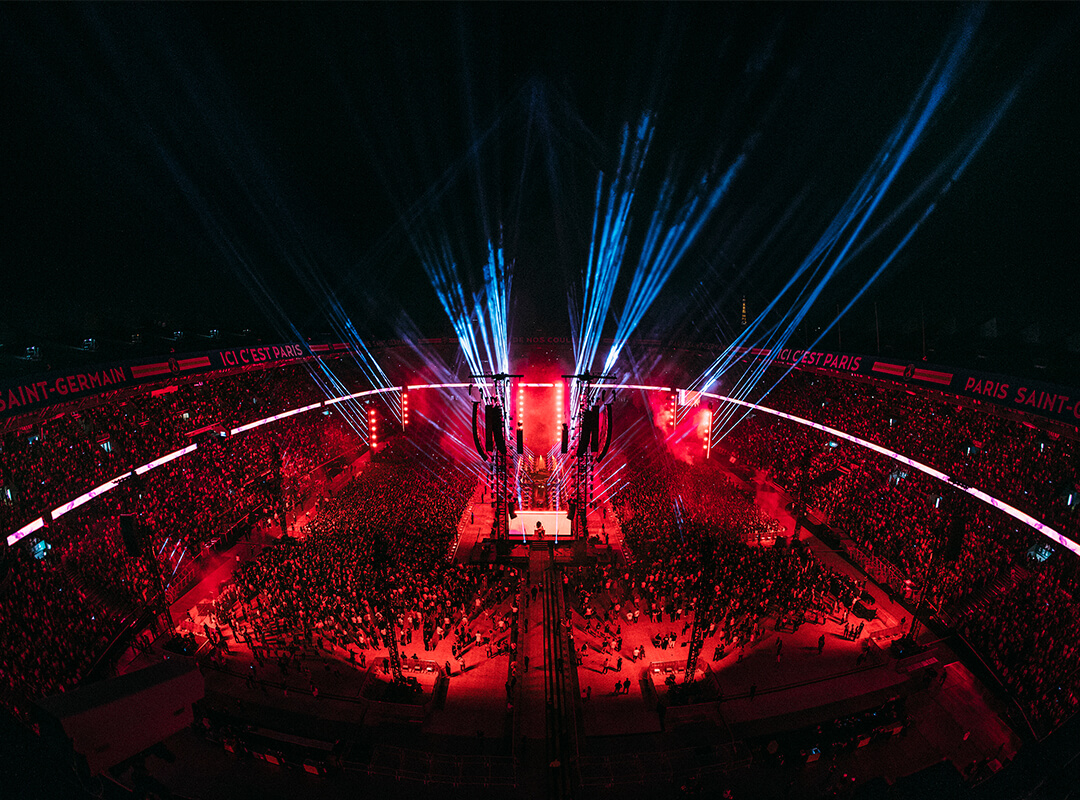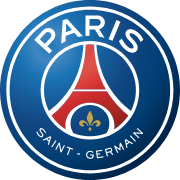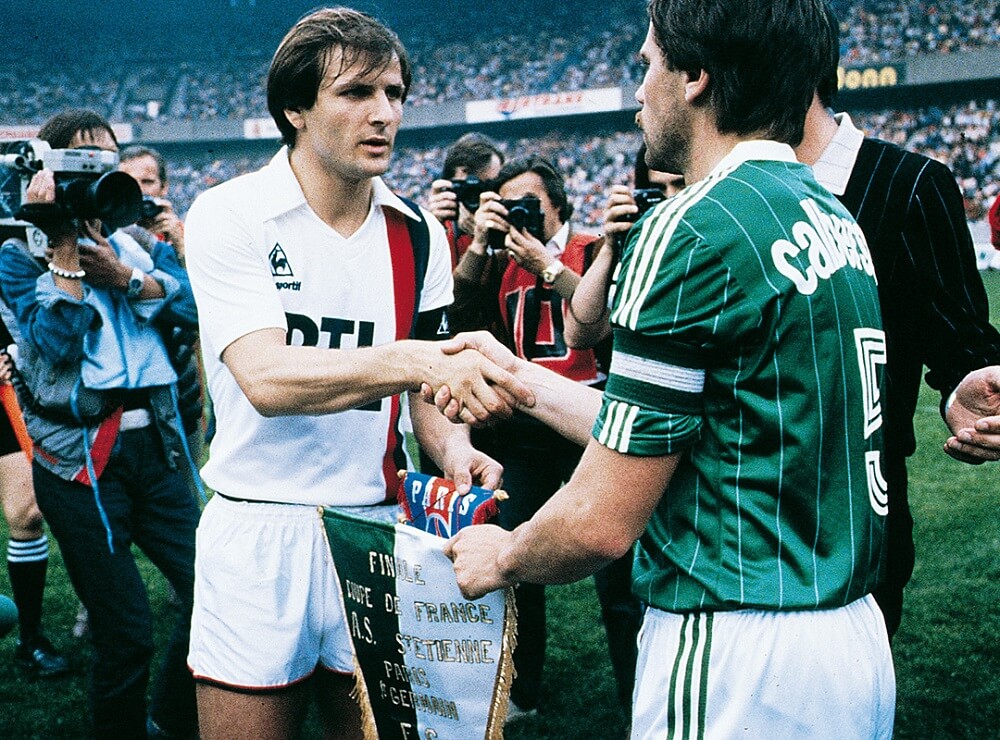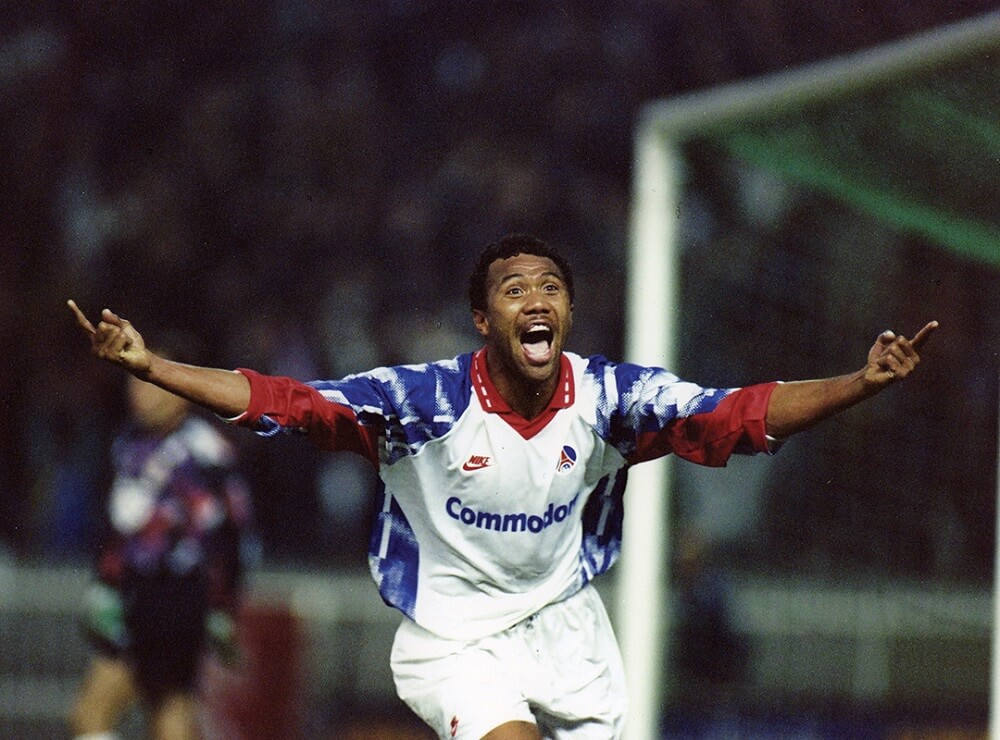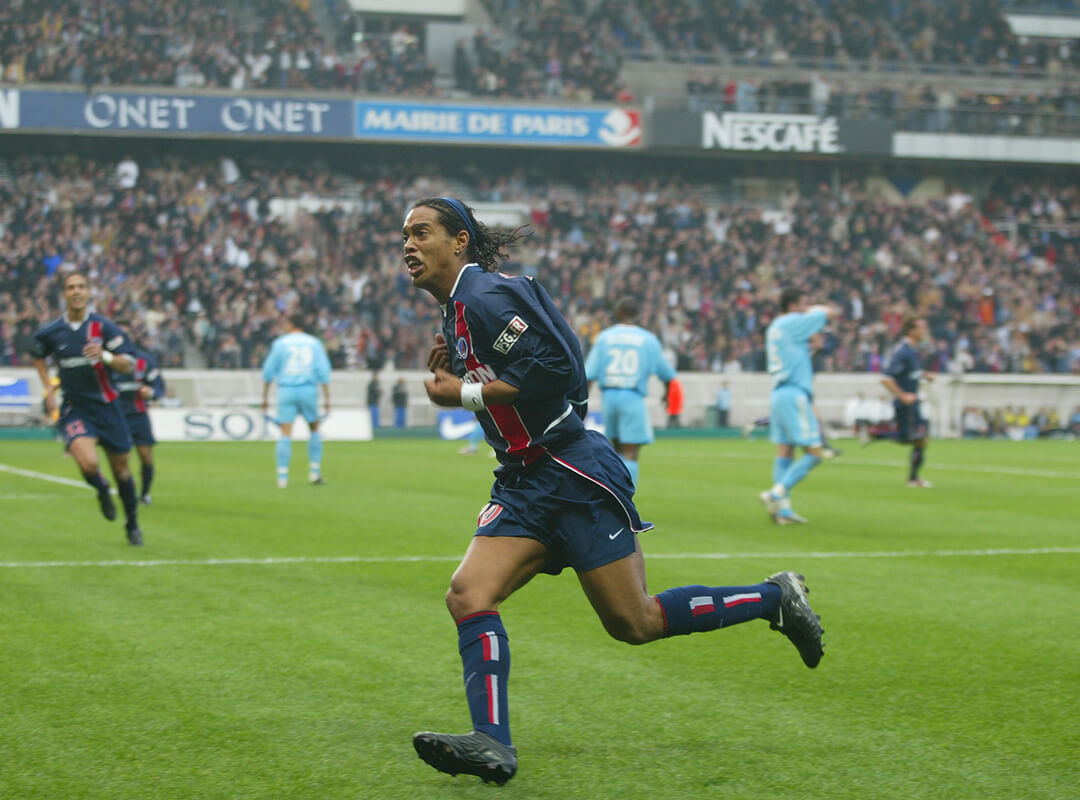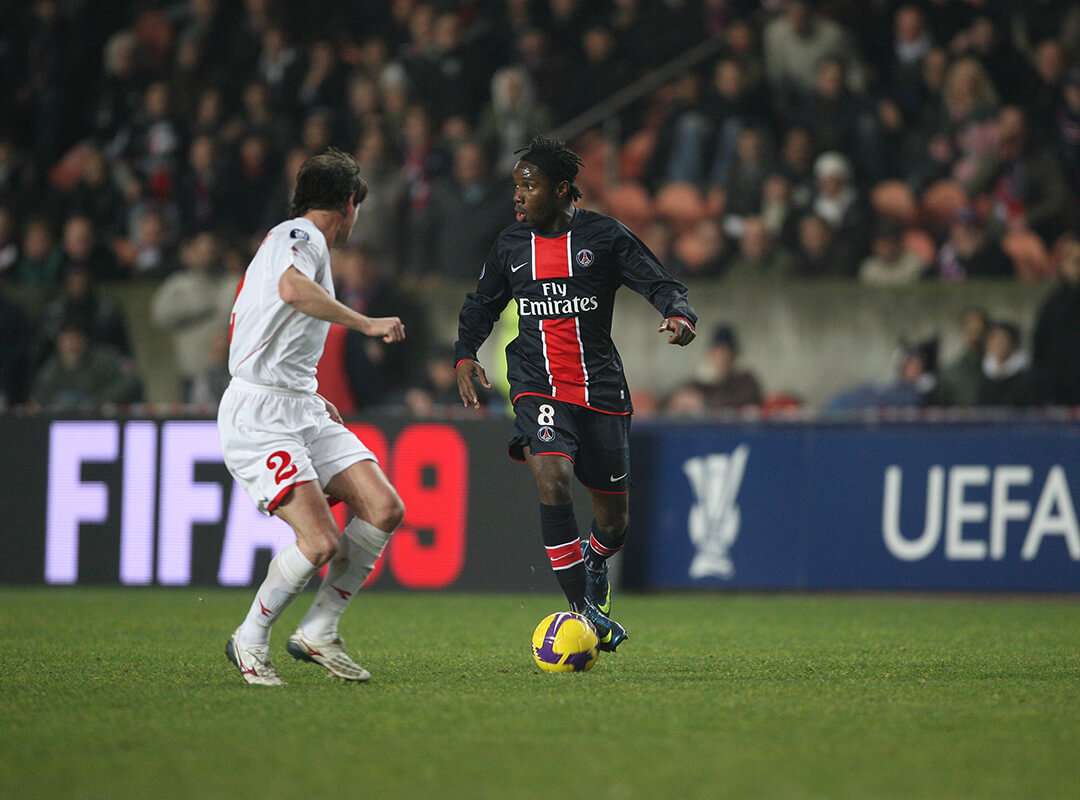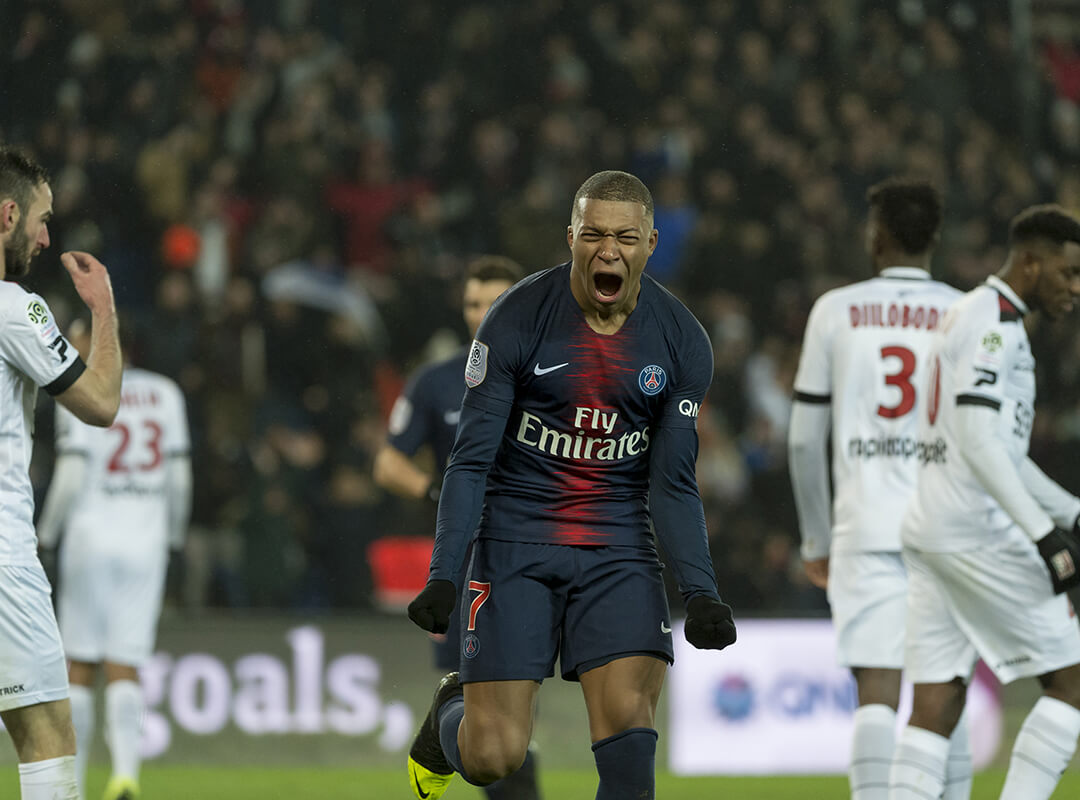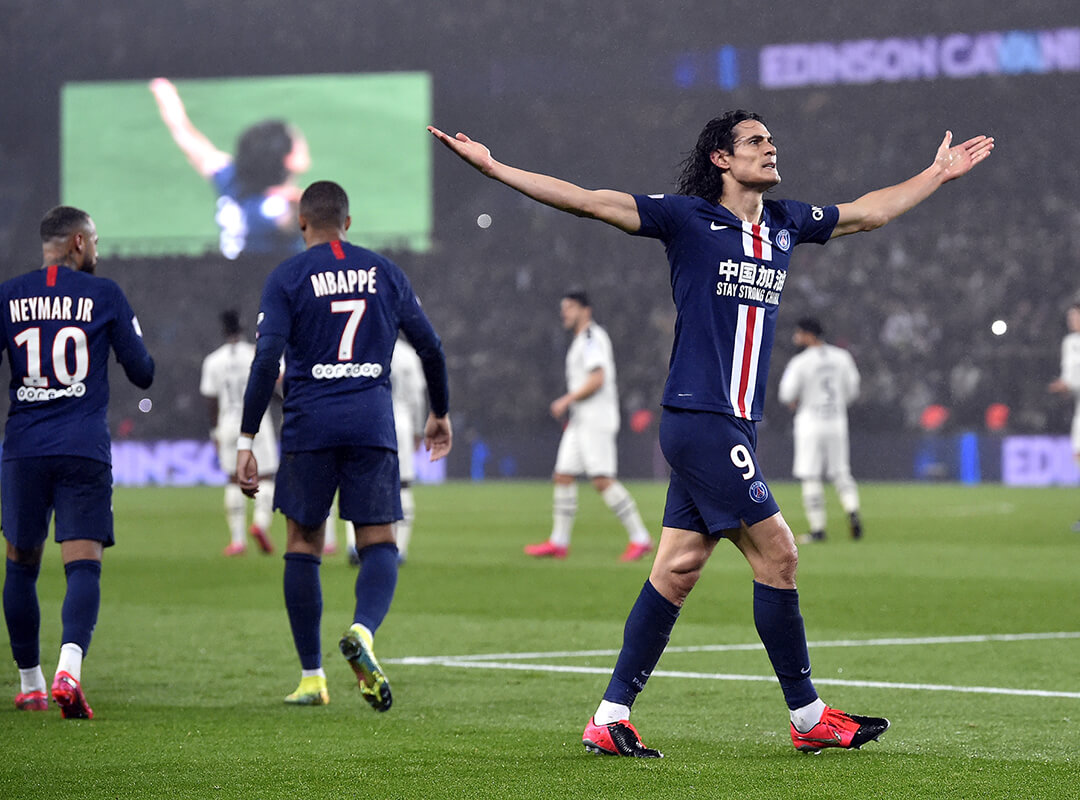
History of Parc des Princes
Welcome to the page dedicated to the history of the Parc des Princes!
As Paris Saint-Germain is intimately linked to its mythical stadium, the Parc des Princes, discover what makes it so special, as well as the events that have forged its history over the years.
The Parc des Princes is a unique stadium, as much for its architecture, its indescribable atmosphere during major national and European events, as for its history and the players who have played there. Endowed with an avant-garde architecture for the time, the Parc des Princes is recognizable by its elliptical shape, as well as by its location above the ring road.
The Parc des Princes is also 4 emblematic grandstands:
-
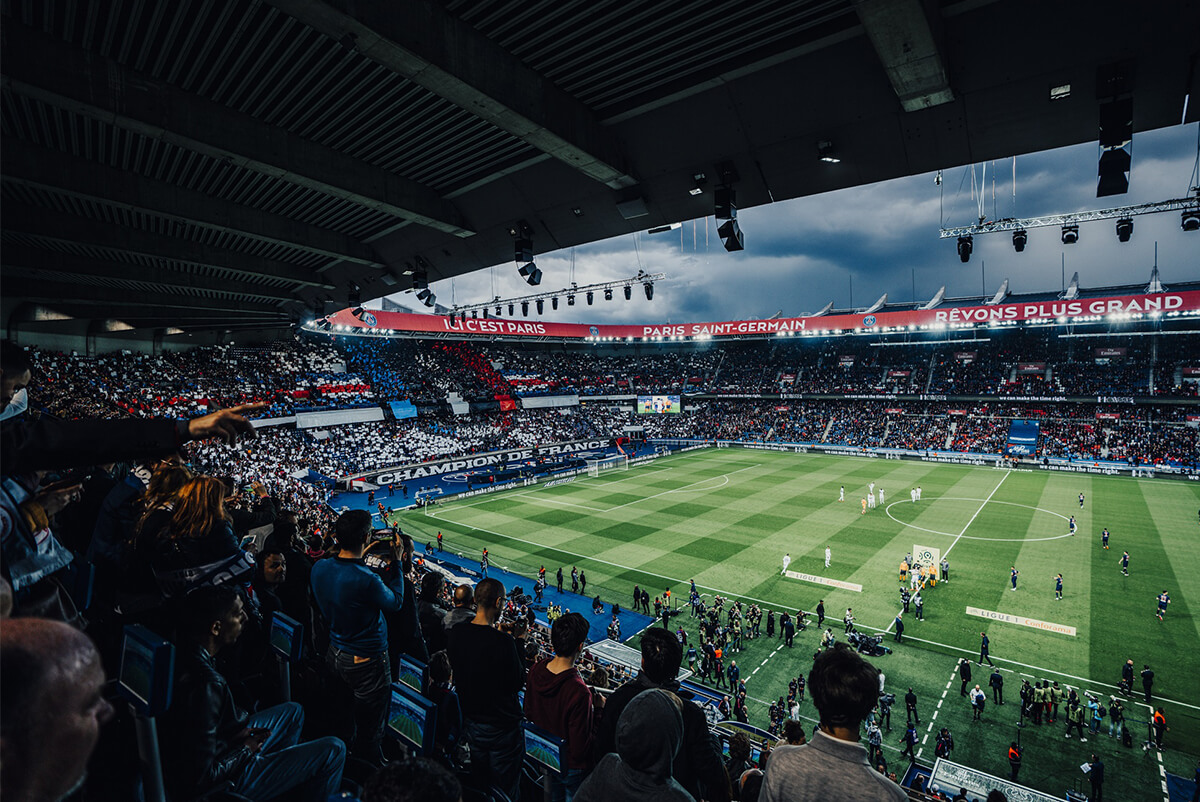
1 Borelli
Formerly known as the Tribune Présidentielle, named after the former president of Paris Saint-Germain, this side stand offers the best view of the players' entrance and the respective benches.
-
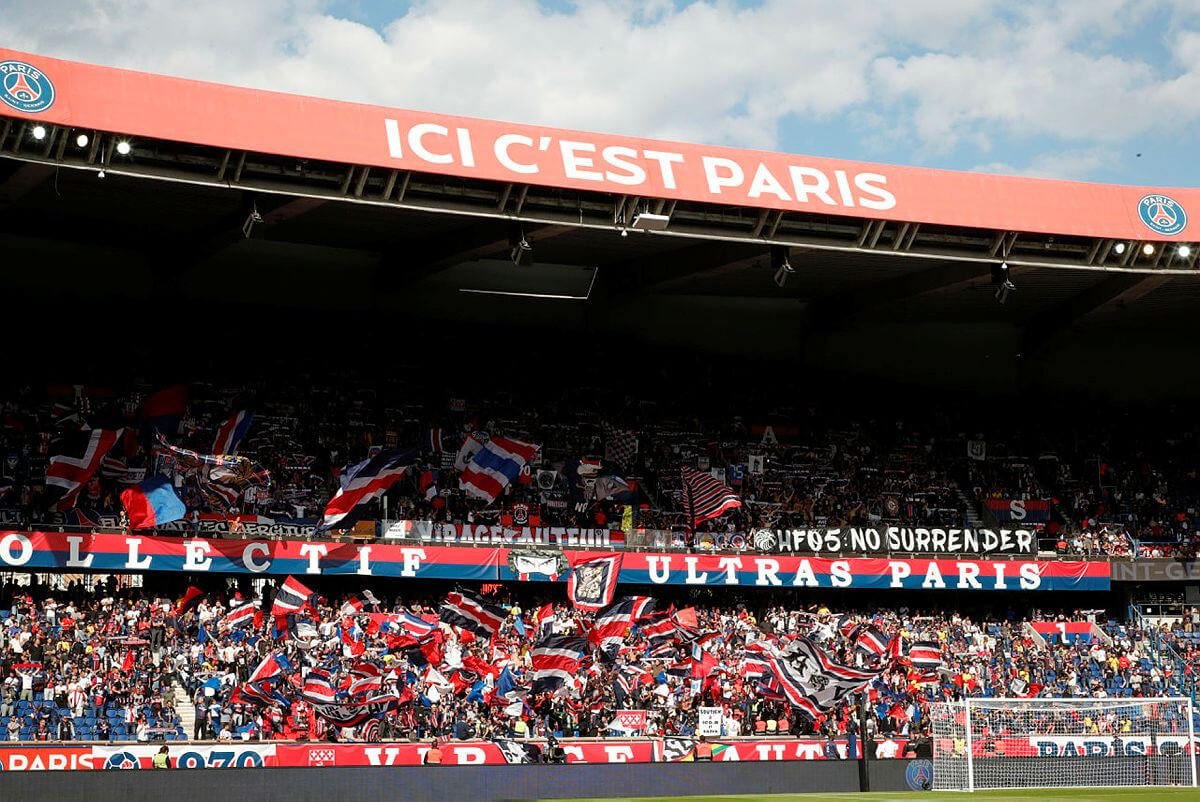
2 Auteuil
It is one of the historic curves of the Parc, in which the club's supporters' songs resound. Thrills guaranteed.
-

3 Paris
Located in front of the Borelli grandstand, this side stand offers a beautiful view of the Parc's lawn, so you don't miss a thing of the meeting.
-
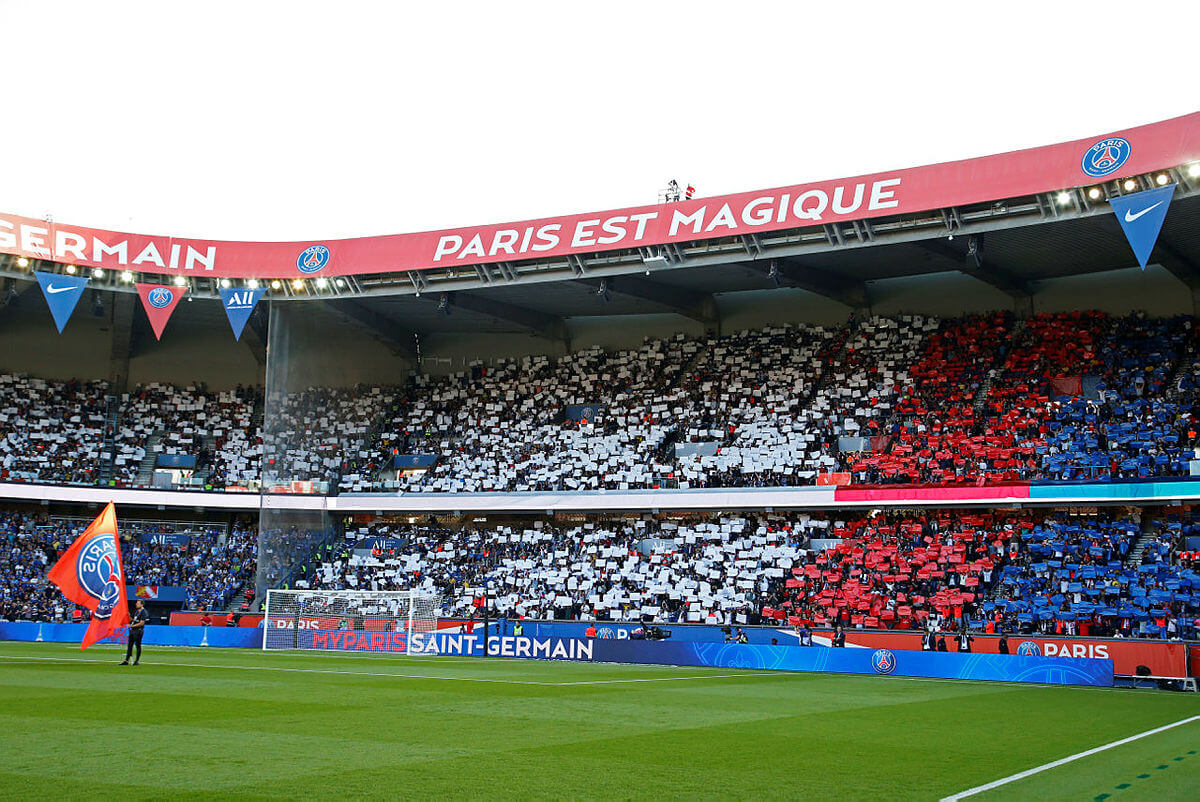
4 Boulogne
This is the other emblematic bend in the Parc, where the songs of the fans respond to those of the Auteuil grandstand.
1973: Paris Saint-Germain discovers the Parc des Princes
If the first Parc des Princes was built in 1897, the Parc as we know it today dates from 1972, following the work of the great architect Roger Taillibert.
Paris Saint-Germain and the Parc des Princes, a history that began on a Saturday in November 1973, the 10th to be precise, the date of the first match between the Red and Blue in their mythical enclosure. From the 1974 - 1975 season, PSG officially became the resident club at the Parc, coinciding with the Parisians' first participation in the D1.
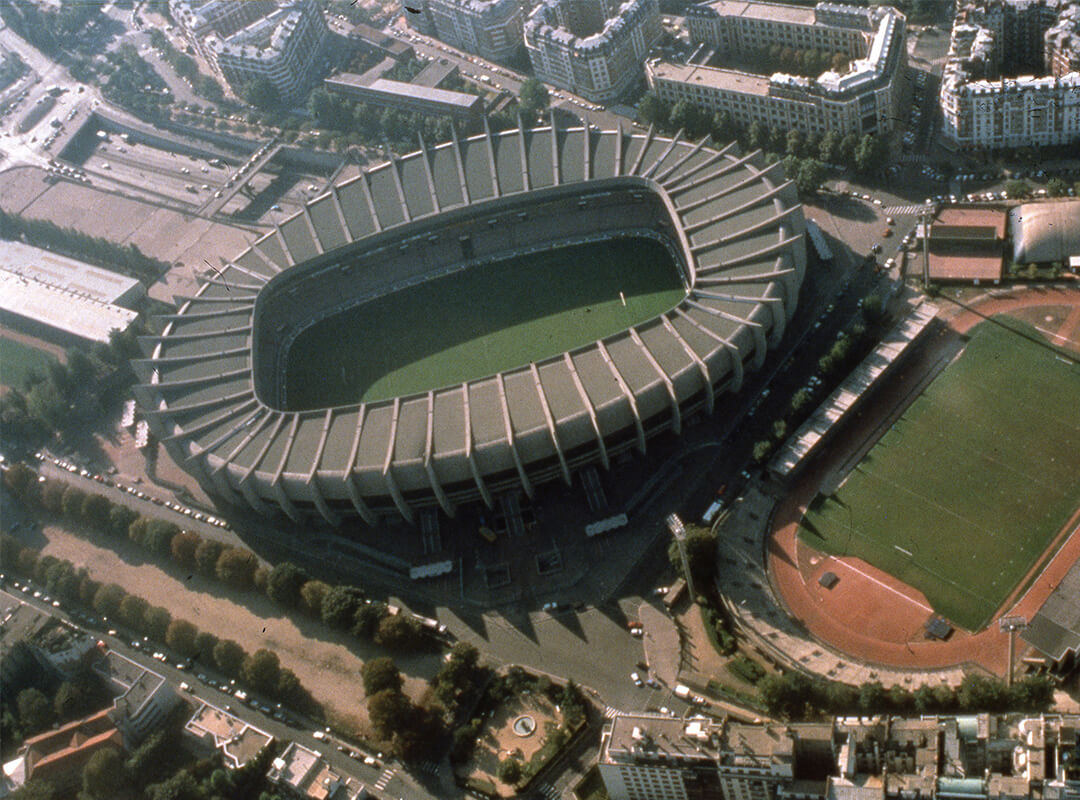
A high-end experience for all club fans
Initiated in 2013, the renovation and modernization of the Parc des Princes is the result of an asserted policy of Paris Saint-Germain, in order to guarantee an experience among the best on the market. With an increase in reception capacity, the creation of new hospitality areas, the restructuring of the changing rooms and the complete renewal of the lawn, nothing has been left to chance in order to guarantee a top-of-the-range experience.
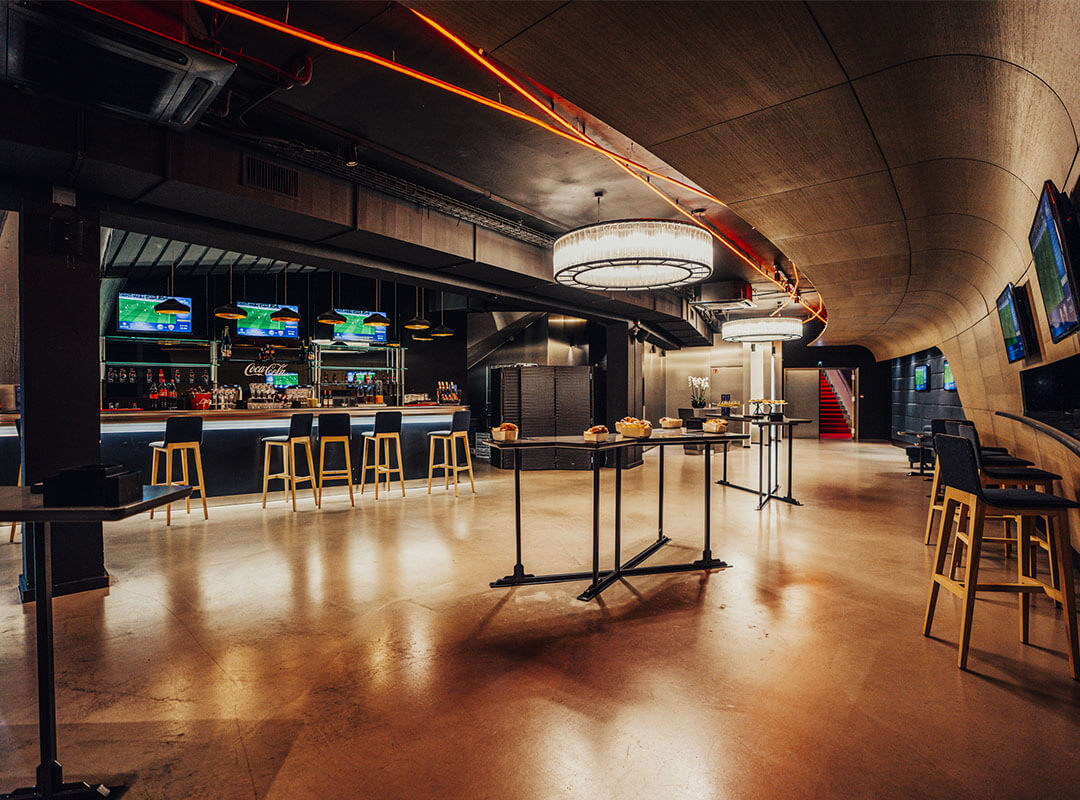
Paris Saint-Germain today
Today, the Parc des Princes has a capacity of nearly 48,000 seats in match configuration, divided into 17 categories. The ticketing offers are among the most developed in Europe, to meet all desires: single tickets, pack offers, MyParis, the membership program, as well as three season ticket offers. Paris Saint-Germain has also developed its own resale platform, Ticketplace. For all these reasons, Paris Saint-Germain set a record of consecutive sold out matches at Parc des Princes.
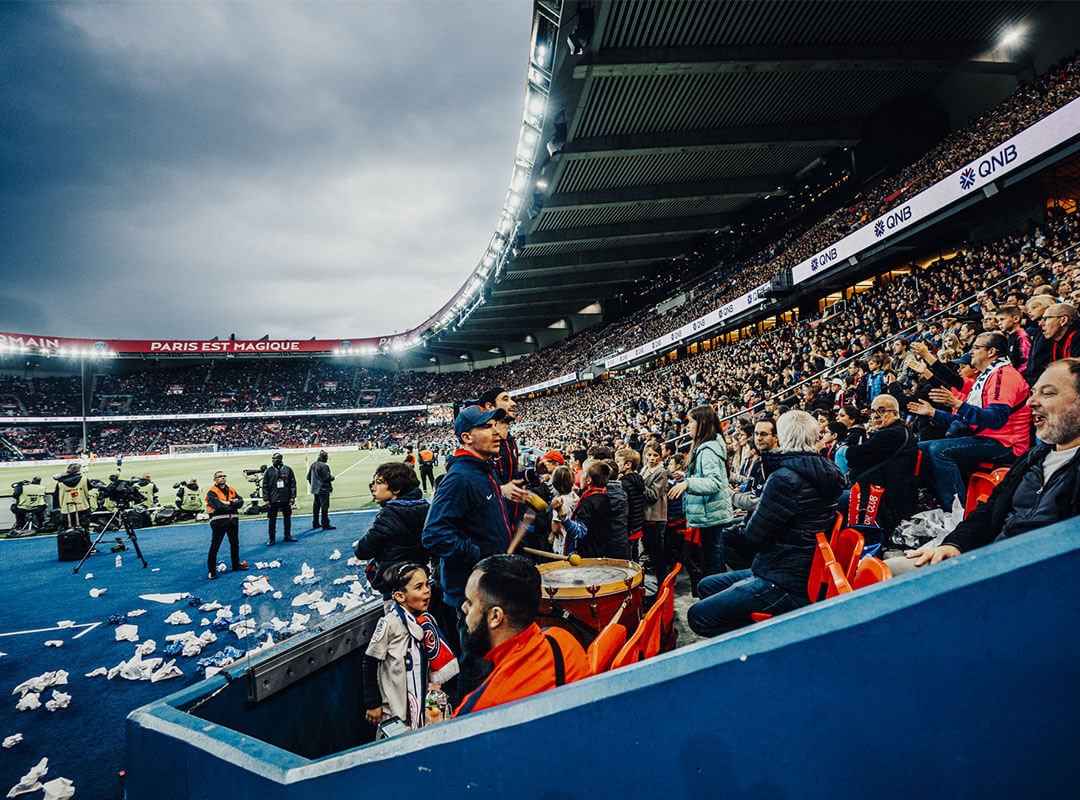
Some of the many matches that have made his legend
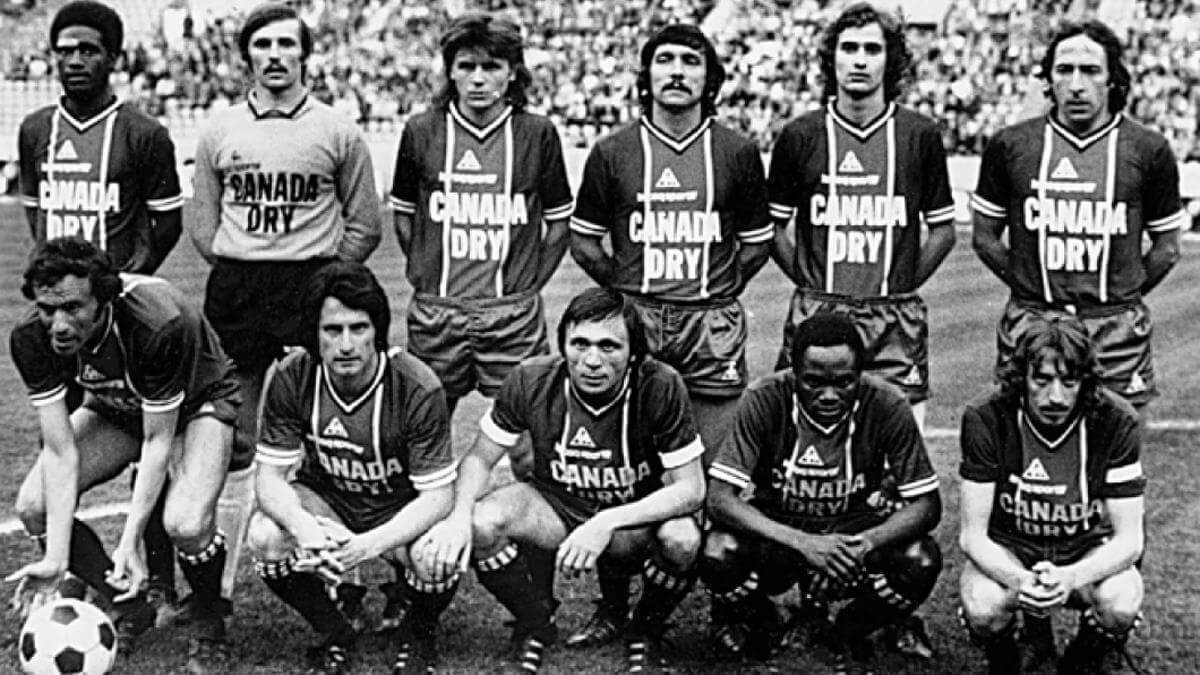
June 4, 1974
It was June 4,1974 and Paris Saint-Germain were about to take part in one of the matches at the Parc that made their history. Defeated 2-1 in the first leg of the play-off in the North, the Parisians won 4-2 in front of their home crowd against US Valenciennes, thus validating their ticket to the elite of the French championship. Just Fontaine, then coach of the club, collapsed happily on the pitch at the Parc.
Other events
During the 1998 Football World Cup organised in France, the Parc des Princes hosted several matches, including the match for third place between the Netherlands and Croatia.
Organised for the first time in France in 2007, the Rugby World Cup saw South Africa triumph over England in the final. The match for third place between the French team and Argentina took place at the Parc.
During the 2019 Women's Football World Cup, organised in France, the Parc des Princes was the venue for the opening match between France and South Korea. The French team won 4-0, thanks in particular to a double from defender Wendy Renard.
The Parc des Princes has also hosted many artists such as the Rolling Stones in 1990, Johnny Hallyday in 1993, DJ Snake and Dadju in 2022.
